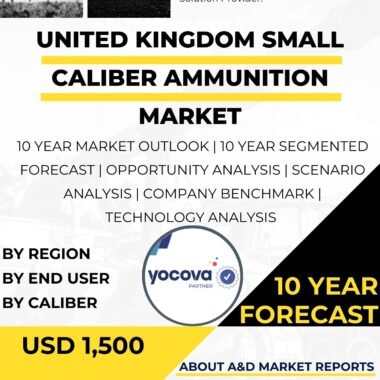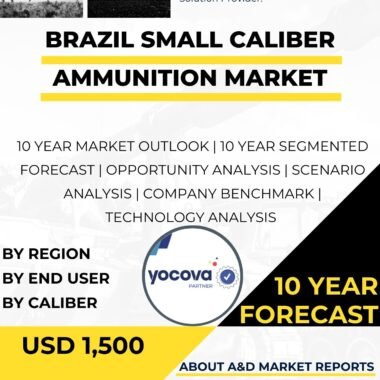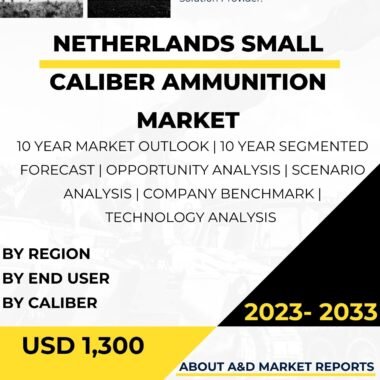Description
Germany small caliber ammunition market has been a significant and dynamic segment within the country’s defense and ammunition industries. Small caliber ammunition refers to cartridges designed for firearms with relatively small bore diameters, typically up to 0.50 inches. This market includes a wide range of ammunition types, such as pistol rounds, rifle rounds, and machine gun ammunition, used by military, law enforcement, and civilian shooters.
The Germany small caliber ammunition market is influenced by several factors, including the country’s commitment to national security, its role in international peacekeeping and stabilization missions, and its thriving arms and ammunition manufacturing sector. As a key NATO member and a leading European economy, Germany recognizes the importance of maintaining a robust and self-sufficient ammunition production capability to meet the needs of its armed forces and security agencies.
The market encompasses both domestic production and imports of small caliber ammunition. Germany boasts a strong domestic ammunition industry, comprising reputable manufacturers known for producing high-quality and reliable rounds. These manufacturers cater to the domestic and international markets, supplying small caliber ammunition to various armed forces, law enforcement agencies, and civilian users worldwide.
The Germany small caliber ammunition market is characterized by a focus on innovation and technological advancements. Ammunition manufacturers continuously strive to develop rounds with improved ballistics, accuracy, and terminal performance to meet the demanding requirements of modern warfare and law enforcement operations. Additionally, the market is influenced by efforts to develop environmentally friendly and lead-free ammunition options.
The export potential of German small caliber ammunition is another crucial aspect of the market. Germany’s reputation for producing high-quality and reliable ammunition has made it an attractive supplier for other countries seeking to modernize their armed forces and law enforcement agencies. However, export decisions are subject to international regulations and political considerations, especially when it comes to the export of sensitive military technologies.
The Germany small caliber ammunition market also addresses the challenges posed by illicit arms trafficking and arms control regulations. Germany is committed to strict export control measures to prevent the diversion of ammunition to unauthorized or illicit users and to promote regional and global stability.
The market must also consider the need to balance investments in small caliber ammunition with other defense priorities. Ammunition is a critical component of any military or law enforcement operation, and decision-makers must carefully allocate resources to ensure that sufficient supplies are available to support ongoing training, operations, and potential contingencies.
Moreover, the Germany small caliber ammunition market is subject to international competition, with other countries also vying for a share of the global market. To remain competitive, German ammunition manufacturers must continue to innovate and offer cutting-edge solutions that meet the evolving needs of their customers.
In conclusion, the Germany small caliber ammunition market is a significant and dynamic segment within the country’s defense and ammunition industries. Advanced small caliber ammunition plays a crucial role in supporting Germany’s national security and defense strategy, as well as contributing to international peacekeeping and stabilization efforts. The market is driven by Germany’s commitment to defense innovation, technological advancements in ammunition manufacturing, and the need to balance investments with other defense priorities. As Germany continues to invest in research and development and explores innovative solutions, the small caliber ammunition market is expected to play an increasingly pivotal role in shaping the country’s defense capabilities and contributing to global security and stability.




